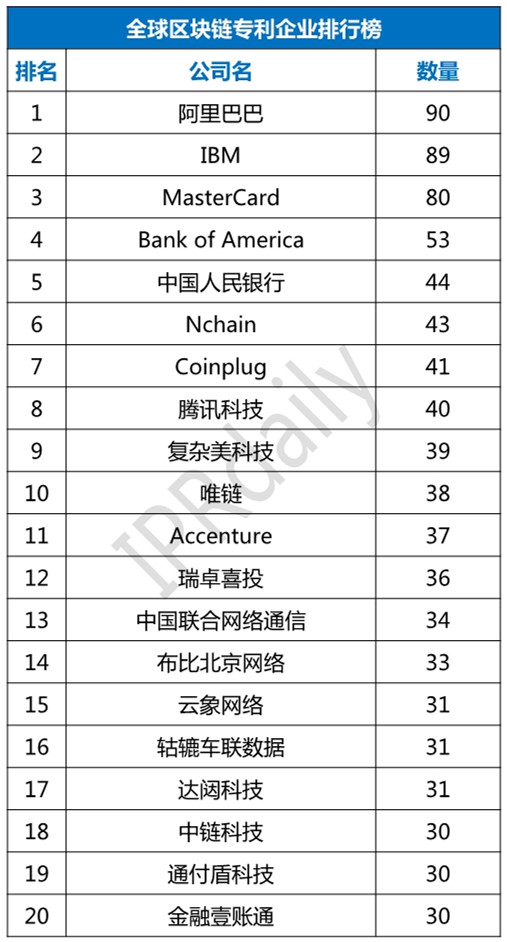Alibaba Has Filed for over 10% of the World’s Blockchain Patents: Research

China’s ongoing drive to dominate the emerging global blockchain technology sector has been underlined by news that Alibaba Group Holding alone filed more than 10 percent of all blockchain patents worldwide in 2017.
Intellectual Property Rights Arms Race
Research by Thomson Reuters shows that 56 percent of all 406 blockchain patents issued around the world in 2017 came from China, with the United States a distant second with 22 percent. Combined with the rapid rise in blockchain patent filings from 134 in 2016 to 406 in 2017, the data tells a story of an ongoing intellectual property rights race that China is currently winning convincingly.
The Nikkei Asian Review reports that of the 406 blockchain patents issued in 2017, Alibaba alone filed 43, with other Chinese tech giants like Tencent and Baidu also dominating the list of blockchain patent owners.
The US still leads China in terms of overall number of blockchain patents filed, but China is fast closing the gap, and on an annual level China is actually in the lead.

No to Crypto, Yes to Blockchain
China has a well-documented atmosphere of regulatory hostility to cryptocurrencies and ICOs, having instituted a total ban on all crypto trading and ICO fundraising earlier this year. Following the ban, auxiliary bans and online purges have become commonplace in an effort to enforce restrictions.
Despite this, Chinese authorities remains very receptive to the technology behind cryptocurrencies, with Chinese President Xi Jinping describing blockchain technology as one of a new generation of technologies that is “substantially reshaping the global economic structure.”
Speaking to the Nikkei Asian Review, Taiwan-based IP specialist and Eiger Law partner John Eastwood explained China’s eagerness to grab as much ‘land’ as possible in the blockchain technology IP contest.
He said:
“Blockchain is a new technological landscape where it could be very profitable for Chinese companies to grab significant territory in their patent claim language. Holding several patents helps to give an aura of legitimacy that helps many companies in the blockchain field to attract investors or acquirers.”
Alibaba’s Grand Designs
Local Chinese media reported last week that the Wuchang municipal government in China’s northeastern Heilongjiang Province entered into a blockchain partnership with Alibaba subsidiary companies Ant Financial and Alipay for the purpose of curbing food fraud and ensuring consumer trust.
Wuchang is renowned for its unique high-quality rice, but a recent spate of counterfeiting incidents have eroded consumer trust and damaged the livelihoods of farmers. The new partnership brings together an Internet of Things (IoT) tracking solution and a blockchain, ensuring that every pack of Wuchang rice sold on Alibaba’s Tmall platform will have a supply chain that is fully visible to consumers via a QR code.
The company is also working on similar anti-food fraud projects in Australia and New Zealand in partnership with PwC and the postal services in both countries. At the same time, it is expanding into the healthcare space with a partnership with the eatern Chinese city of Changzhou to store medical data on a blockchain, giving authorized health personnel instant access to patients’ complete medical histories.
Featured image from Shutterstock.